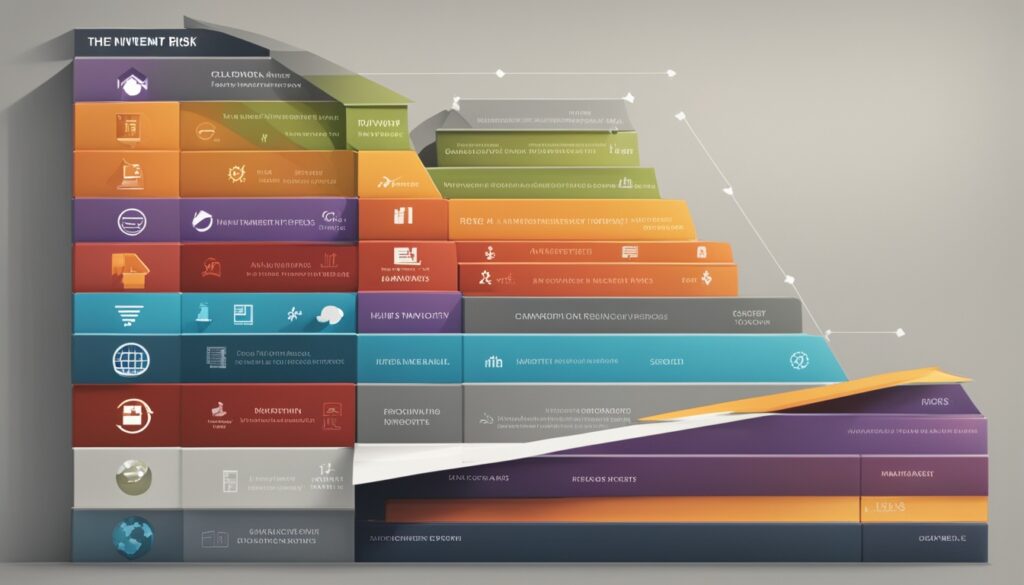Even the sharpest and most successful folks can slip up when dealing with money. They might spend too much or pick wrong investments. These errors can cause big money troubles and debts that last long. Jill Schlesinger, a certified financial planner, says even smart people can make huge financial mistakes.
If they don’t get disability insurance, a serious illness could hurt their work. This would mean they earn less money. Not writing a will can leave a big tax to pay for their family. And, keeping stock options when the market’s down could lose them a lot of money.
Why do smart people make such mistakes? It’s often because of emotions, like fear and greed. Also, certain ways our brains work can lead to these wrong money choices. Behavioral economics looks into why we make these financial decisions and how to avoid the bad ones.
Key Takeaways
- Even intelligent people can make costly money mistakes due to emotions and cognitive biases
- Refusing disability insurance, not writing a will in time, and keeping stock options during a downturn are common financial mistakes
- Overspending and bad investment choices can cause significant financial losses and debt
- Behavioral economics examines how our psychological states impact our financial choices, leading to errors
- Knowing about emotional and cognitive influences can support us in making better financial decisions and evade expensive errors
Overconfidence and Excessive Optimism
Even smart people can make big money mistakes. This happens when we are too sure of ourselves and overly positive. We often don’t think bad things will happen to us, only to others. This can make us take risky financial chances without protecting ourselves enough.

Thinking we can predict the future well leads to overconfidence. We see success in the past and just expect it to go on forever. We forget that bad things like market drops or losing a job can happen. This makes us forget about making good financial plans or managing risks.
Underestimating the Likelihood of Negative Events
Sometimes people who are healthy don’t get disability insurance. They think they won’t get sick or hurt badly, so why bother with the insurance cost? But if they do get surprised by something bad, they’re not ready for the financial hit.
“It’s not just about calculating the odds of something going wrong; it’s about understanding how much you stand to lose if the worst happens.”
Investors might get too hopeful about a good investment, like a stock or cryptocurrency. They believe it will keep doing well, and they hang on to it. This can be bad if the investment suddenly turns south.
Believing in the Continuity of the Recent Past
We often think the good times will roll on. Maybe because our investments have done great for some time. Or we feel we’ll always stay healthy just because we have been so far.
But we should remember that markets and health are not always good. They have ups and downs, and we need to be ready for the bad times too. We must have a financial plan that covers us when things go wrong.
| Cognitive Bias | Description | Financial Impact |
|---|---|---|
| Overconfidence | Believing that we are better at predicting the future than we actually are | Making risky financial decisions without adequate protection |
| Excessive Optimism | Underestimating the likelihood of negative events occurring in our lives | Failing to plan for potential setbacks or challenges |
| Belief in the Continuity of the Recent Past | Assuming that positive trends will continue indefinitely | Overlooking the need for proper financial planning and risk management |
Understanding and dealing with these mental blind spots helps us make better choices. We need to be clear-eyed about the risks and gains of our decisions. This beats letting our overconfidence and too much optimism mess us up.
Neglecting Proper Protection and Planning
The smartest people can misjudge their financial situation. Overconfidence and too much optimism can lead us astray. We might not prepare for bad things to happen. Yet, not planning well can hurt our money matters. Moreover, this miscalculation can have lasting repercussions, particularly when it comes to our savings and investments. For instance, by ignoring the effects of inflation, individuals may find their purchasing power eroded over time, making it difficult to maintain their desired lifestyle. It’s crucial to adopt a balanced perspective and implement realistic financial strategies to safeguard against unexpected downturns.
Failing to Purchase Necessary Insurance
Skipping important insurance is a common error. We might think we don’t need health, disability, or life insurance. This mistaken belief can hit hard. Imagine not being able to work because of a health issue. Without the right insurance, it’s a big financial hit.
Delaying Estate Planning
Estate planning often gets pushed aside. Writing a will or setting up a trust seems like something we can tackle later. But, this delay can cause problems. It might lead to big taxes or assets not going where you wish. A solid estate plan ensures your family is cared for as you want.

Not Diversifying Investments
Diversification is crucial in investing. Putting all eggs in one basket is risky. Even if it seems safe to invest heavily in one thing, a sudden drop can be devastating. Spreading investments protects you if one part of your portfolio falls.
Looking at what you could lose helps fight overconfidence. If a big financial hit would be hard on you, it’s time to act. This means getting the right insurance, making a solid estate plan, and spreading out investments. These steps lower your financial risk.
Being real about money and risk helps avoid big blunders. A solid financial plan makes for a safer future for you and your loved ones.
Rushing into Financial Decisions
In finance, we face big pressures to make quick choices. Salespeople push us, and we see deals that won’t last. But, acting fast often leads to regret. We need to stop, think, and look at all our choices before deciding.

Succumbing to High-Pressure Sales Tactics
High-pressure sales tactics aim to make us act fast. They make us think we’ll miss something great if we don’t. These methods work, even on smart people. Tactics like limited-time offers, few spots left, and saying risks aren’t big matter, or everyone is doing it, push us to buy quickly.
But, we should know speedy choices aren’t usually the best. Carefully thinking about what we’re doing can save us from future regrets.
Failing to Consider Alternatives and Consequences
When we forget to look at other choices and all outcomes, we might make a wrong move. So, before you jump into something, ask yourself important questions:
- What will this choice cost me?
- Is there a better option for me?
- How will this affect my ready cash?
- What tax issues might there be?
- Can I handle the worst that could come?
Taking time to deeply think about your choices is the key to making wise financial decisions. This makes you more sure and in control.
“The most important quality for an investor is temperament, not intellect. You need a temperament that neither derives great pleasure from being with the crowd or against the crowd.” – Warren Buffett
Famed investor Warren Buffett tells us the best investors stay calm and smart, no matter what others do or say. Trust your own judgment and make choices based on your personal financial plans and how much risk you’re ready for.
| Rushed Decision Pitfalls | Smart Decision Strategies |
|---|---|
| Succumbing to high-pressure sales tactics | Taking time to evaluate options thoroughly |
| Failing to consider alternatives and consequences | Asking key questions about costs, liquidity, taxes, and worst-case scenarios |
| Acting on emotion or following the crowd | Maintaining a level-headed approach aligned with personal goals and risk tolerance |
Knowing the risks of hasty choices and using smart ways to decide will lead you to financial success. Taking time to think shows wisdom, not weakness.
Money Mistakes and Behavioral Economics
Even the smartest individuals sometimes make mistakes with money. This is because we are emotional, not just logical. Fear, greed, and our minds’ habits often influence our financial choices. Behavioral finance explores these issues, showing how our emotions and biases can steer us wrong.
Behavioral economics studies how our thoughts affect our money choices. It highlights the errors we commonly make. Loss aversion makes us fear losing money more than we enjoy gaining it. This can lead us to wrong decisions. Mental accounting tricks us into managing money oddly, based on its source or use, not its total value. The urge to follow others, known as herd mentality, also affects our choices, pulling us from our goals.
Knowing about these traps helps us make smarter money decisions. Learning about behavioral finance lets us understand and fight our own biases. This knowledge can prevent big money mistakes. It helps us make choices that are good for our financial future. In a world where financial mistakes can be serious, behavioral economics is a key guide for managing our money.

